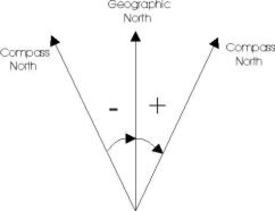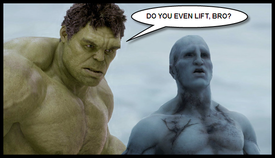BMI - how much do you depend on your BMI #
Options
Replies
-
I think the funniest part of this thread are the responses calling BMI useless, but following it up with "my pants size is..."
because THAT is certainly an indicator of healthy weight. :laugh:
It directly correlates to waist size which actually is in indication of health. So -- not sure why that is hilarious, but um yeah. Yes, sizes vary -- but if you are a size 10 US your waist is likely 27-29.
Because you need to consider your waist to height ratio. Pants size means nothing. A 10 on a tall person is going to be someone with a much different ratio than a short person. Clothes sizing is not a measurement of fitness, health or bf% especially since sizes vary so much. I have clothes that range from size 2 to 10 and they all fit although I do like your US sizes because I can wear a much smaller number in your generous sizing.
Yeah, but generally speaking, if somebody is throwing out a number US 12 (29-30 waist) and under, the likelihood is they wouldn't be considered overweight by that W/H ratio. Unless, of course they are under 5'0 or over 6'0. It's kind of nitpicky since most women are 5 foot something or other.0 -
I don't pay any attention to BMI. It has nothing to do with anything that is relevant to me.0
-
BMI is pretty accurate for an average person. The range for a particular height takes into account different frame sizes. You would know if you aren't average --- aka you are carrying a significantly higher or lower amount of muscle mass than the average person of your height. If you have a lot of muscle from lifting weights or being very athletic, then a higher than "normal" BMI may be fine. If you have a lower than average muscle mass from illness, poor diet, or ED, you may be at a lower than "normal" BMI but still appear "fat".0
-
agree with everybody else, BMI is crap, i'm obese by those standards just because i carry a lot of muscle. Don't pay attention to that, i just go by how i look in the mirror and how i feel about myself
What does how you feel about yourself have to do with whether or not your are overweight?
Boom. :drinker:0 -
I think I'm going to have to state the facts about BMI since I am a Registered Dietitian and Nutritionist. The DEFINITION of Body mass index (BMI) is a measure of BODY FAT based on height and weight that applies to adult men and women. While it does have its limitations, it is a useful tools to measure underweight, healthy weight, Overweight or obese status in individuals who are not bodybuilders or athletes.
That being said, BMI also does not differentiate between body fat and muscle mass. This may often result in misleading information with regard to the amount of fat in an individual. There is a potential risk of overestimating ‘fatness’ in individuals with high muscle mass, such as body-builders, and underestimating the fat deposit in those with less lean body mass, such as the elderly.
In Healthcare settings, BMI is used it is part of the Nutritional Assessment of a patient/resident and for Medical billing purposes in the United States. I am just stating the facts here, as I use it everyday at my job. If the Patient/Resident is determined to be either underweight, overweight or obese based on weight and height alone, I must code for that. There are no exceptions.
I am 5'1" and 102-103 lb = BMI of 19.3-19.5 (Healthy Weight), I workout 6 days per week and lift weights 3x per week, but not heavy and I'm not a body builder. Personally, I am more concerned about my body fat percentage and amount of lean body mass I have.
Therefore, while BMI can be a useful health tool in many individuals it is not a useful in Body Builders and Athletes, esp. in Males who lift heavy weights, they will almost always be labeled as Overweight or Obese. Again BMI does not differentiate between fat mass and muscle mass. Better indicators for fitness level would be Body Fat %, Waist Circumference and Waist to Hip Ratio. Also go by how you look in the mirror and how you fit in your clothes.
Great link below on the Limitations of BMI and Calculating BMI
http://www.medindia.net/patients/patientinfo/body-mass-index-limitations.htm
http://www.nhlbi.nih.gov/health/public/heart/obesity/lose_wt/risk.htm
Waist to Hip Ratio Calculator
http://www.bmi-calculator.net/waist-to-hip-ratio-calculator/0 -
I think I'm going to have to state the facts about BMI since I am a Registered Dietitian and Nutritionist. The DEFINITION of Body mass index (BMI) is a measure of BODY FAT based on height and weight that applies to adult men and women. While it does have its limitations, it is a useful tools to measure underweight, healthy weight, Overweight or obese status in individuals who are not bodybuilders or athletes.
That being said, BMI also does not differentiate between body fat and muscle mass. This may often result in misleading information with regard to the amount of fat in an individual. There is a potential risk of overestimating ‘fatness’ in individuals with high muscle mass, such as body-builders, and underestimating the fat deposit in those with less lean body mass, such as the elderly.
In Healthcare settings, BMI is used it is part of the Nutritional Assessment of a patient/resident and for Medical billing purposes in the United States. I am just stating the facts here, as I use it everyday at my job. If the Patient/Resident is determined to be either underweight, overweight or obese based on weight and height alone, I must code for that. There are no exceptions.
I am 5'1" and 102-103 lb = BMI of 19.3-19.5 (Healthy Weight), I workout 6 days per week and lift weights 3x per week, but not heavy and I'm not a body builder. Personally, I am more concerned about my body fat percentage and amount of lean body mass I have.
Therefore, while BMI can be a useful health tool in many individuals it is not a useful in Body Builders and Athletes, esp. in Males who lift heavy weights, they will almost always be labeled as Overweight or Obese. Again BMI does not differentiate between fat mass and muscle mass. Better indicators for fitness level would be Body Fat %, Waist Circumference and Waist to Hip Ratio. Also go by how you look in the mirror and how you fit in your clothes.
Great link below on the Limitations of BMI and Calculating BMI
http://www.medindia.net/patients/patientinfo/body-mass-index-limitations.htm
http://www.nhlbi.nih.gov/health/public/heart/obesity/lose_wt/risk.htm
Waist to Hip Ratio Calculator
http://www.bmi-calculator.net/waist-to-hip-ratio-calculator/
:flowerforyou:0 -
I don't "depend" on it. I'll be honest; was I excited to pass from the overweight range to the healthy range - yes. But I don't let it define me. I know perfectly well that I am not healthy and still need to lose more weight even though my BMI says I'm healthy, but still - if it is something motivating for me I'll take it any day.0
-
Entirely hypothetical: imagine if you will a woman. She's 5'6, 180lbs. Say in actuality, her bf% is ~35% or so. She's in her second week of lifting 3lb dumbbells on a program from a women's magazine. She's convinced her wee pump means she is developing huge muscles, and is kind of worried about moving up to 5lbs. She wears a size 12 American pant in some stores, a 14 in others. She's got an hourglass figure, likes her curves, and is the smallest in her social group. What are her perceptions likely to be? Say she's seeing a bicep line or something.0
-
I can see how everyone is saying that having lot's of lean muscle will throw off the BMI number. But I think for most of us who are overweight or obese lack lean muscle, which is the main problem. We have too much fat and not enough muscle. So for me, I feel the BMI scales are accurate. I am 5'6, 170 which makes my BMI 27 overweight. I feel this is very accurate. When I look in the mirror I see an overweight person but not an obese person. My goal weight is 150 which is what I have been my whole life. This makes my BMI 24. At 24 I look and feel fabulous! Not too skinny at all but just right. You on the other hand, seem to have a good deal of muscle. You could probably stay that way.0
-
I think I'm going to have to state the facts about BMI since I am a Registered Dietitian and Nutritionist. The DEFINITION of Body mass index (BMI) is a measure of BODY FAT based on height and weight that applies to adult men and women. While it does have its limitations, it is a useful tools to measure underweight, healthy weight, Overweight or obese status in individuals who are not bodybuilders or athletes.
That being said, BMI also does not differentiate between body fat and muscle mass. This may often result in misleading information with regard to the amount of fat in an individual. There is a potential risk of overestimating ‘fatness’ in individuals with high muscle mass, such as body-builders, and underestimating the fat deposit in those with less lean body mass, such as the elderly.
In Healthcare settings, BMI is used it is part of the Nutritional Assessment of a patient/resident and for Medical billing purposes in the United States. I am just stating the facts here, as I use it everyday at my job. If the Patient/Resident is determined to be either underweight, overweight or obese based on weight and height alone, I must code for that. There are no exceptions.
I am 5'1" and 102-103 lb = BMI of 19.3-19.5 (Healthy Weight), I workout 6 days per week and lift weights 3x per week, but not heavy and I'm not a body builder. Personally, I am more concerned about my body fat percentage and amount of lean body mass I have.
Therefore, while BMI can be a useful health tool in many individuals it is not a useful in Body Builders and Athletes, esp. in Males who lift heavy weights, they will almost always be labeled as Overweight or Obese. Again BMI does not differentiate between fat mass and muscle mass. Better indicators for fitness level would be Body Fat %, Waist Circumference and Waist to Hip Ratio. Also go by how you look in the mirror and how you fit in your clothes.
Great link below on the Limitations of BMI and Calculating BMI
http://www.medindia.net/patients/patientinfo/body-mass-index-limitations.htm
http://www.nhlbi.nih.gov/health/public/heart/obesity/lose_wt/risk.htm
Waist to Hip Ratio Calculator
http://www.bmi-calculator.net/waist-to-hip-ratio-calculator/
:flowerforyou:
Thanks Coach Reddy. I'm glad you agree. :happy:0 -
I dislike how the outliers say the whole scheme is broke because of them. Not everyone is an outlier. As it's already been said, it's a tool for measuring populations and really shouldn't be applied strictly to individuals.
That being said, a long time ago, when I was in the military BMI was used to calculate weight allowances. You could get an exception if you got tested and proved it was muscle. I never met someone with an exception.0 -
I think I'm going to have to state the facts about BMI since I am a Registered Dietitian and Nutritionist. The DEFINITION of Body mass index (BMI) is a measure of BODY FAT based on height and weight that applies to adult men and women. While it does have its limitations, it is a useful tools to measure underweight, healthy weight, Overweight or obese status in individuals who are not bodybuilders or athletes.
That being said, BMI also does not differentiate between body fat and muscle mass. This may often result in misleading information with regard to the amount of fat in an individual. There is a potential risk of overestimating ‘fatness’ in individuals with high muscle mass, such as body-builders, and underestimating the fat deposit in those with less lean body mass, such as the elderly.
In Healthcare settings, BMI is used it is part of the Nutritional Assessment of a patient/resident and for Medical billing purposes in the United States. I am just stating the facts here, as I use it everyday at my job. If the Patient/Resident is determined to be either underweight, overweight or obese based on weight and height alone, I must code for that. There are no exceptions.
I am 5'1" and 102-103 lb = BMI of 19.3-19.5 (Healthy Weight), I workout 6 days per week and lift weights 3x per week, but not heavy and I'm not a body builder. Personally, I am more concerned about my body fat percentage and amount of lean body mass I have.
Therefore, while BMI can be a useful health tool in many individuals it is not a useful in Body Builders and Athletes, esp. in Males who lift heavy weights, they will almost always be labeled as Overweight or Obese. Again BMI does not differentiate between fat mass and muscle mass. Better indicators for fitness level would be Body Fat %, Waist Circumference and Waist to Hip Ratio. Also go by how you look in the mirror and how you fit in your clothes.
Great link below on the Limitations of BMI and Calculating BMI
http://www.medindia.net/patients/patientinfo/body-mass-index-limitations.htm
http://www.nhlbi.nih.gov/health/public/heart/obesity/lose_wt/risk.htm
Waist to Hip Ratio Calculator
http://www.bmi-calculator.net/waist-to-hip-ratio-calculator/
:flowerforyou:
Thanks Coach Reddy. I'm glad you agree. :happy:
I confess to being a little confused with your post. You mention that you consider it a good indicator, and that in your job you have to apply it strictly as defined. But then provide links that talk about the drawbacks. One of my concerns if it has these drawbacks then you need to know you are in one of these groups to be able to know to either use another measure or apply a correction, and if there are other better measures (like body fat%) then why not use them instead?
Just to be a little bit pedantic BMI is not a measure of fat based on weight and height, it is an estimate, which is really the problem with it, it is very wide bell curve. Using the graph here as an example.
http://upload.wikimedia.org/wikipedia/commons/b/b7/Correlation_between_BMI_and_Percent_Body_Fat_for
_Men_in_NCHS%27_NHANES_1994_Data.PNG
My current bodyfat is about 23% which could be anything between a BMI of about 19 to 32, my actual BMI is 29.8. I am not especially muscular. If I keep my current lean mass of 72Kg and get to 15% bodyfat (which is about where you start to show a sixpack) I will still have a BMI of about 27.5 i.e. overweight. Yet as far as my build etc I would say I was no more than average.
Nice to have a professionals view on it!0 -
My current bodyfat is about 23% which could be anything between a BMI of about 19 to 32, my actual BMI is 29.8. I am not especially muscular. If I keep my current lean mass of 72Kg and get to 15% bodyfat (which is about where you start to show a sixpack) I will still have a BMI of about 27.5 i.e. overweight. Yet as far as my build etc I would say I was no more than average.
For a male your body fat % is on the high end of average (18-24) and you likely wouldn't start to show abs until sub 13%. I think you are confusing male and female body fat percent ideals.
ETA It is also pretty much impossible to maintain ALL your lean body mass as you lose weight, even if you eat right and lift. So you would end up at a lower weight to get to the 13-15% range anyway.0 -
I dislike how the outliers say the whole scheme is broke because of them. Not everyone is an outlier. As it's already been said, it's a tool for measuring populations and really shouldn't be applied strictly to individuals.
That being said, a long time ago, when I was in the military BMI was used to calculate weight allowances. You could get an exception if you got tested and proved it was muscle. I never met someone with an exception.
Apparently it depends on the military. In the Navy, we used BF% as measured by circumfernces of waist hip and neck as I mentioned in a previous post.
I think a lot of the issue here is that this is a fitness related website, and as such, you are going to have a higher than normal number of outliers here who will take offense to the BMI being used as an indicator of health and fitness. It's like going to the Democratic Party National Convention, and surveying all attendees about Obama's approval rating, and then reporting to the nation that Obama has a 97% approval rating. Too much bias here for this argument.0 -
No one should ever go by BMI. It's not an accurate way to measure yourself! I am 130lbs all muscle and by BMI it says I am Obese! No way jose! You need to take into consideration how much fat/muscle/height ect a person has.0
-
I get it, I played quads for many years! My legs are like thors0
-
I feel the bmi is way off you are by no means overweight. their criteria for what is considered overweight is very unrealistic.
they would consider a body builder obese so i really don't put much stock in it. incidently according to the bmi the nurse at my daughter's school considered my daughter over weight at 4"9 inches tall and 90 pounds.0 -
I don't rely on the BMI chart at all. I go by feeling, measurements and before/after pictures. I don't even really trust a scale much since mine isn't moving but my pants are fitting better and my running has improved.0
-
The only reason I pay any attention to it at all is because my insurance company does.0
-
BMI is crap.
In my opinion, it's because of the BMI charts that people have eating disorders. They are so obsessed with a random # that they can't see with their own eyes that their body looks good.
I agree! According to the BMI charts the "TOP" end of my "healthy" weight range is 160lbs. However, my goal weight is 155-160 and I think I would start to look pretty scrawny if I aimed for the 140 that BMI would suggest. I have an athletic body type, very muscular legs and bigger bones.
Yes, I know what some people might say about "big boned" but it's true. My cousin and I eat healthy and work out together. Even when we're both fit beyond belief, she is always smaller than me and about 10lbs lighter than me. Her rib cage is probably 3 inches smaller than mine but we're the same height. It's just the way I'm built. Thus, the BMI charts would probably put me at borderline "overweight" when, in fact, I'm right on target and very healthy.0
Categories
- All Categories
- 1.4M Health, Wellness and Goals
- 391.9K Introduce Yourself
- 43.5K Getting Started
- 259.8K Health and Weight Loss
- 175.7K Food and Nutrition
- 47.3K Recipes
- 232.3K Fitness and Exercise
- 400 Sleep, Mindfulness and Overall Wellness
- 6.4K Goal: Maintaining Weight
- 8.5K Goal: Gaining Weight and Body Building
- 152.8K Motivation and Support
- 7.9K Challenges
- 1.3K Debate Club
- 96.3K Chit-Chat
- 2.5K Fun and Games
- 3.4K MyFitnessPal Information
- 23 News and Announcements
- 988 Feature Suggestions and Ideas
- 2.4K MyFitnessPal Tech Support Questions













